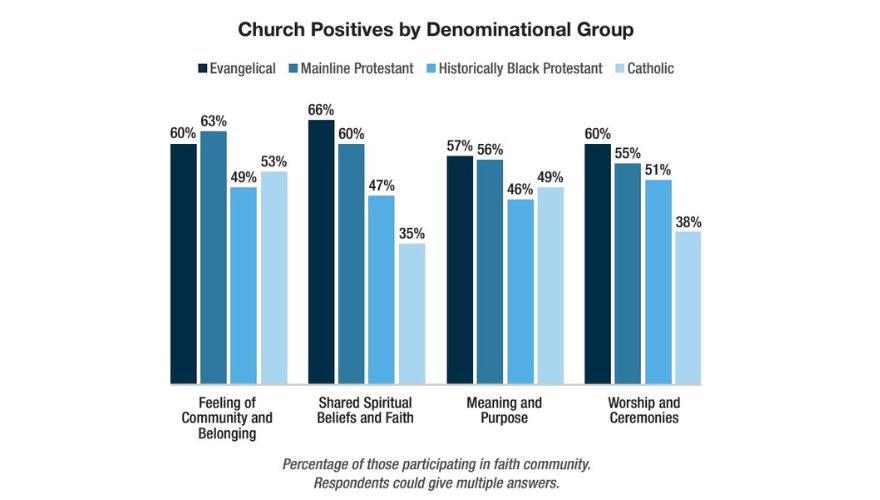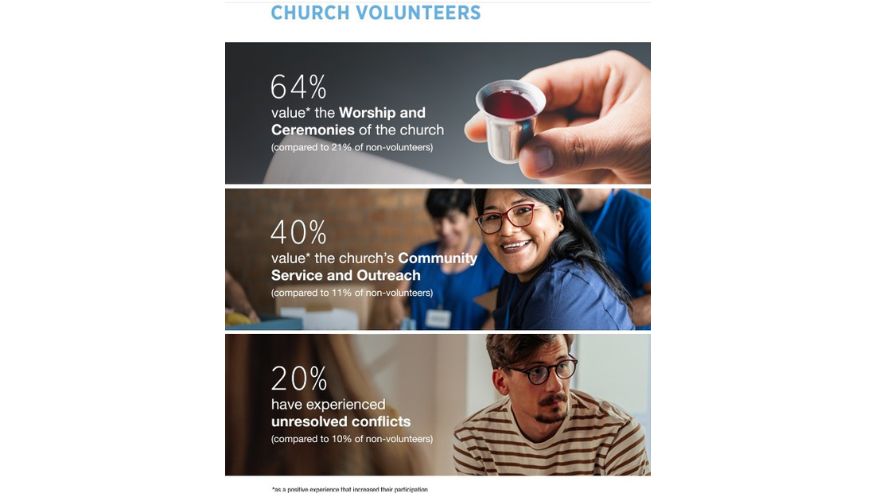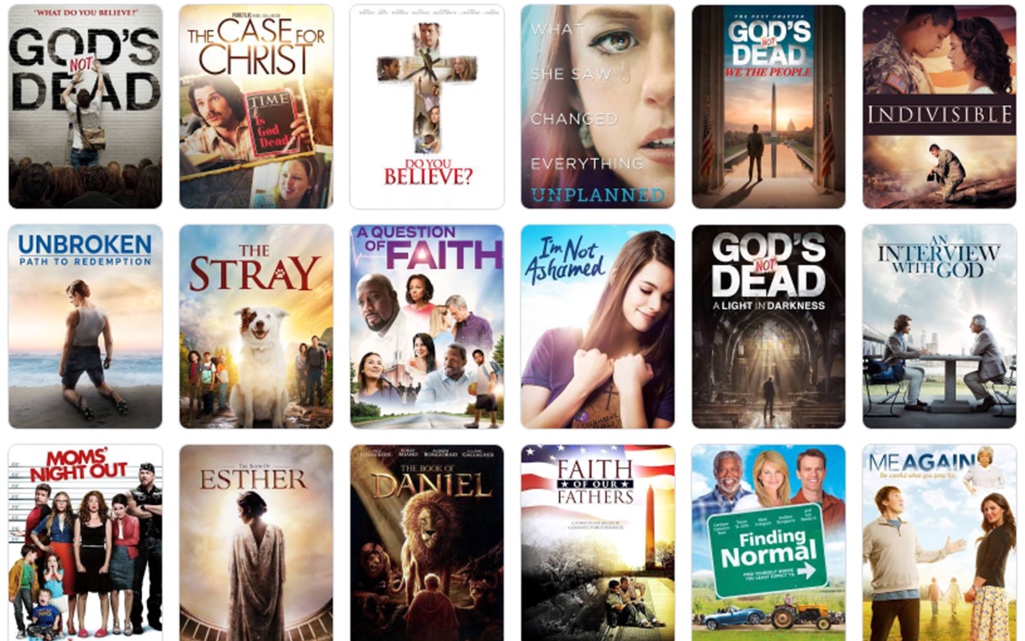
PHILADELPHIA, Pa. (BP) — A sense of community and belonging inch out shared spiritual beliefs and faith as a church draw for all groups but Evangelicals, the American Bible Society (ABS) said in its latest release from the 2024 State of the Bible.
Of the respondents in the study who attend church, 55% said they do so because of a feeling of community and belonging, followed by 53% who attend because of shared spiritual beliefs and faith, and 51% because of meaning and purpose.
But two-thirds of Evangelicals, 66%, are drawn to church by a shared sense of faith, ABS said April 8 in releasing the fifth chapter of the 14th annual study.
Participants in Mainline Protestant churches are most likely to identify a feeling of community and belonging (63%) as a draw, while active Catholics are more likely than other groups to be drawn by cultural or family tradition (43%).
Less than half of all respondents combined, 48%, said worship and ceremonies draw them to church, ABS said.

“The top answers, for both positive and negative responses, are about belonging. When churchgoers feel that they belong, they participate more,” John Farquhar Plake, ABS chief innovation officer and State of the Bible editor-in-chief, said in releasing the findings. “And when they feel excluded by cliques, they drift away. So, what can your church do about that? This new chapter offers a few ideas.”
A sense of community and belonging is still a top draw among Evangelicals at 60%, joined by worship and ceremony at 60%, and meaning and purpose at 57%.
Falling below 50% for Evangelicals are religious education and learning, 47%; community service and outreach, 36%; culture or family tradition, 20 %; and conversion or religious experience, 17%. The aspects are also less than top draws for other denominations cited in the findings.
While the findings come from a nationally representative AmeriSpeak panel of the University of Chicago’s NORC (formerly National Opinion Research Center) research organization, 42% of the 2,506 subjects chose not to answer, saying they did not attend church or participate in a faith community.
Those who did respond were selected from nine provided choices of things that attract them to church or faith community, ABS said. Among other responses:
- 20% said a feeling of exclusion or the presence of cliques within faith communities deterred their participation.
- 19% said the church judged or condemned their lifestyle choices, a feeling more common among Gen Z and Millennials (23% and 24%, respectively).
- 12% are deterred by unresolved conflicts within faith communities.
- 5% said they haven’t felt safe in church or the faith community, most common among Gen Z (8%).
Denominations seemed equally impacted by adverse perceptions that drive away attendance, researchers said, with the exception of 15% of Evangelicals and 14% of Mainline Protestants that cited conflicts within faith communities that were not resolved satisfactorily, compared to 8 % of historically Black denominations and 6% of Catholics.

Active church volunteers more often expressed a feeling of community and belonging than non-volunteers, 68% to 55%, researchers said, and also expressed a deep care for those communities they actively support.
The study was conducted online in January 2024 among adults in all 50 states and the District of Columbia. Additional results from the findings will be released monthly through December, focusing on the Bible’s impact in restoring hope; spiritual nones and nominals; loneliness and the Bible; philanthropy; and other topics.
The fifth chapter is available for free download here.
(EDITOR’S NOTE — Diana Chandler is Baptist Press’ senior writer.)


